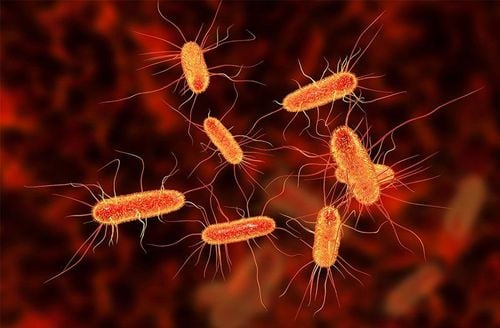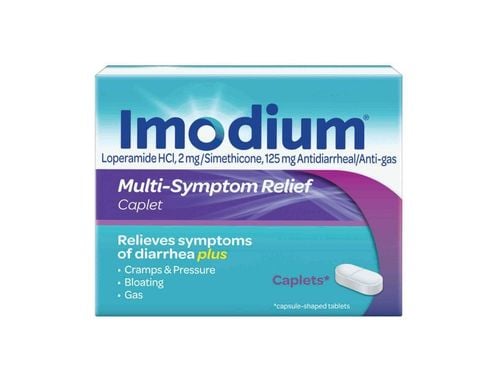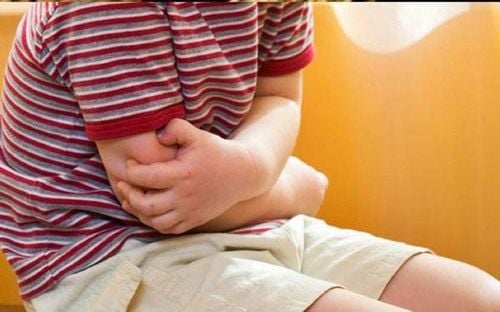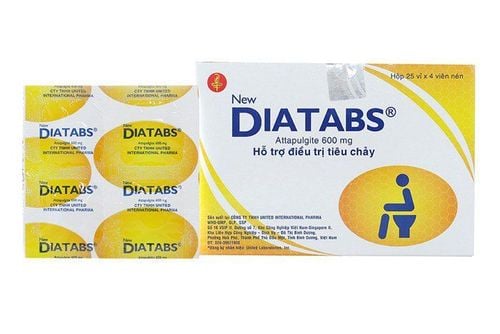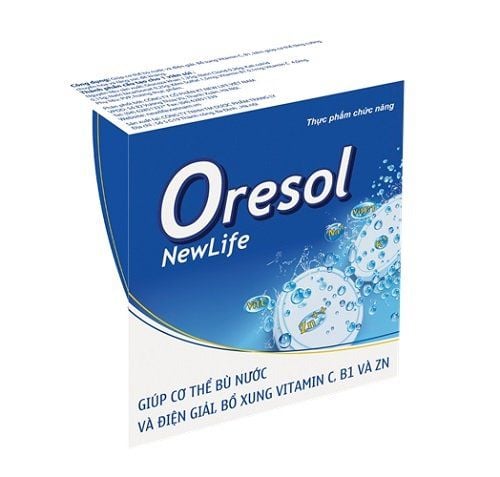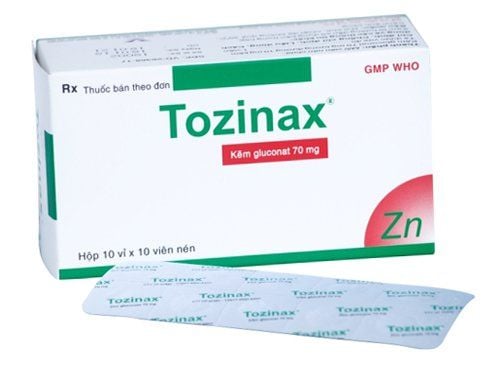This is an automatically translated article.
The article was professionally consulted with Specialist II Cao Thi Thanh - Pediatrician - Pediatrics - Neonatology - Vinmec Hai Phong International General Hospital.Dehydration and electrolyte loss is one of the major causes of death from diarrhea in children. Therefore, when children have diarrhea but there is no dehydration, parents need to actively take measures to supplement water and nutrients for children.
1. How dangerous is diarrhea in children?
Diarrhea occurs when pathogens enter the gastrointestinal tract, produce enterotoxins that stimulate the secretion of electrolytes, invade and destroy epithelial cells of the intestinal lining, causing inflammation in the intestines and intestines. Body. Many pathogens can cause diarrhea such as:Virus: Rotavirus is the leading cause of acute diarrhea in children, other viruses that can cause disease are adenovirus, Coronavirus, Picornavirus,... bacteria: E.coli is the most common cause, followed by Shigella, Campylobacter jejuni, Salmonela, Vibrio cholerae,.. Parasite: Entamoeba histolytica, this is the main cause of amoebic dysentery . Diarrhea is one of the leading causes of death in children, especially in poor and developing countries. According to estimates of the World Health Organization, in 2003 worldwide, about 1.87 million children under 5 years old died from diarrhea, of which most children concentrated in 0-2 years old. Due to weak resistance, diarrhea in children and diarrhea in infants are very common. On average, children under 3 years of age will have diarrhea 3-4 times a year, especially those with acute diarrhea. up to 8-9 times per year.
Diarrhea is divided into acute diarrhea and chronic diarrhea. Clinically, acute diarrhea accounts for the majority, over 80% of cases have diarrhea. Acute diarrhea in children usually occurs within 5-7 days and lasts no more than 14 days. Children have symptoms such as sudden diarrhea, loose stools, more than 3 bowel movements in 24 hours. In addition to diarrhea, the child may vomit repeatedly, making dehydration and electrolytes worse. Children are anorexic, just like to drink water, or cry, struggle, sometimes tired, lie down, convulsions may occur. If children are not treated and cared for properly, diarrhea can be life-threatening.
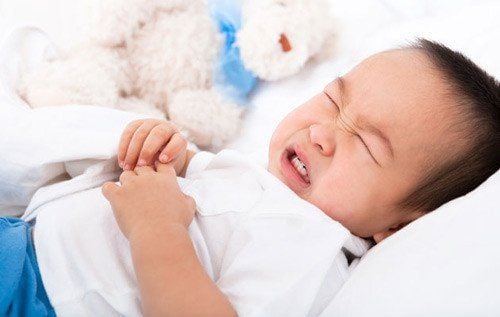
2. Assess the degree of dehydration in acute diarrhea in children
Dehydration is an important cause of death from diarrhea in children. Children with acute diarrhea need to be evaluated for dehydration according to the following criteria:Severe dehydration: if the child has 2 of the signs Sunken eyes Sleepy, difficult to wake up Drinks very poorly or does not drink at all When pinching the skin, the skin pinch disappears very slowly There is dehydration: if the child has 2 of the signs Sunken eyes Struggling, excited Drink a lot of water, thirst, drink eagerly When pinching the skin, the pinch disappears slowly No dehydration when There are not enough signs to classify dehydration or severe dehydration. Assessment of dehydration is very important, based on the degree of dehydration will choose the right treatment regimen for the child. If the child is not already dehydrated, the child will be treated according to the home treatment regimen for diarrhea. If the child is dehydrated, the child will be treated for dehydration with ORS and oral rehydration at a medical facility. If your child is severely dehydrated, he or she will be given intravenous fluids or a nasogastric tube to quickly improve dehydration.
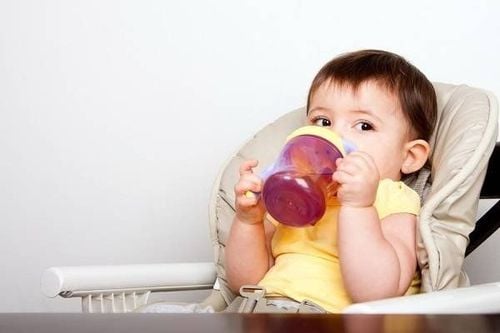
3. Preventing the risk of dehydration for diarrhea in children
For children who are not yet dehydrated, diarrhea can be treated at home. To prevent possible dehydration, parents must strictly follow these 4 principles:3.1 Give your child more fluids than usual to prevent dehydration
If diarrhea is present in an exclusively breastfed infant, feed more frequently and each feed for longer. For older children, it is necessary to supplement children with one or more fluids such as:ORS solution, salted porridge, salted rice water, soup, soup. Note that the soups should not be too salty, only use about 3g of salt for 1 liter of water. Liquids that do not contain salt such as clean water, rice water, coconut water, fruit juice without sugar. Pay attention not to give children sugary soft drinks such as industrial soft drinks with CO2, industrial fruit juices, sugar tea, ... because sugary drinks can cause osmotic diarrhea, increase sodium blood . Do not give coffee, medicinal teas or infusion solutions to children because they can stimulate diuresis, worsen diarrhea and dehydration.
If ORS solution is given to a child, the ORS solution must be properly mixed. Dispensing equipment must be clean, carefully read the instructions for use to know how much water to mix, if not mixed with enough water, the solution is too thick, it will be dangerous. If too much water is mixed, the ORS solution is too dilute, the effectiveness of rehydration and electrolytes will not be guaranteed. The reconstituted ORS solution must be kept clean and used within 24 hours.
Give your child fluids according to their needs until the diarrhea stops. For children under 2 years old, give them 50-100ml to drink after each bowel movement. Children from 2 to 10 years old, give them 100-200ml to drink after each bowel movement. For children older than 10 years old, give them to drink on demand.
3.2 Increase feeding of children to prevent malnutrition
Children who eat enough nutrients, the body will recover quickly, the diarrhea time will be shortened. Therefore, the child's diet should be strengthened, not fasting, not diluting food. Most children with watery diarrhea will have an appetite after being rehydrated, while those with bloody diarrhea often don't want to eat until the illness is in remission. In these children, it is necessary to encourage children to eat, to give them foods they like to quickly recover their health.Food should be soft or crushed for easy digestion. Children should eat many small meals, every 3-4 hours for children to eat, eating small amounts will be easier for children to absorb than a diet with fewer meals and large amounts of food. Potassium-rich foods such as coconut water, bananas, fresh fruit juices are very useful for children.
It is necessary to avoid giving children raw fruits, vegetables, and cereals with a lot of fiber because it is difficult to digest. Do not eat foods with too much sugar as this can make osmotic diarrhea worse.
3.3 Give children zinc supplements within 10-14 days
Zinc is important in the immune system, helping to shorten the duration and severity of acute diarrhea in children, and prevent new episodes of diarrhea within 2-3 months after treatment. In addition, zinc also helps improve children's appetite and growth.Should give children zinc as soon as possible when there are symptoms of diarrhea, taking zinc on an empty stomach will help absorb zinc better. Zinc is taken orally with the following dosage:
Children under 6 months old: 10mg/day for 10-14 days Children older than 6 months: 20mg/day for 10-14 days.
3.4 Take the child to the medical facility immediately when the child shows abnormal signs
Children should be taken to medical facilities immediately if the child has signs of: recurrent vomiting, frequent bowel movements, becoming very thirsty, blood in the stools, poor feeding, refusal to breastfeed, child's condition. does not improve after 2 days of treatment. These are signs of diarrhea in children and worsening dehydration. Children need timely intervention of medical staff.Please dial HOTLINE for more information or register for an appointment HERE. Download MyVinmec app to make appointments faster and to manage your bookings easily.





